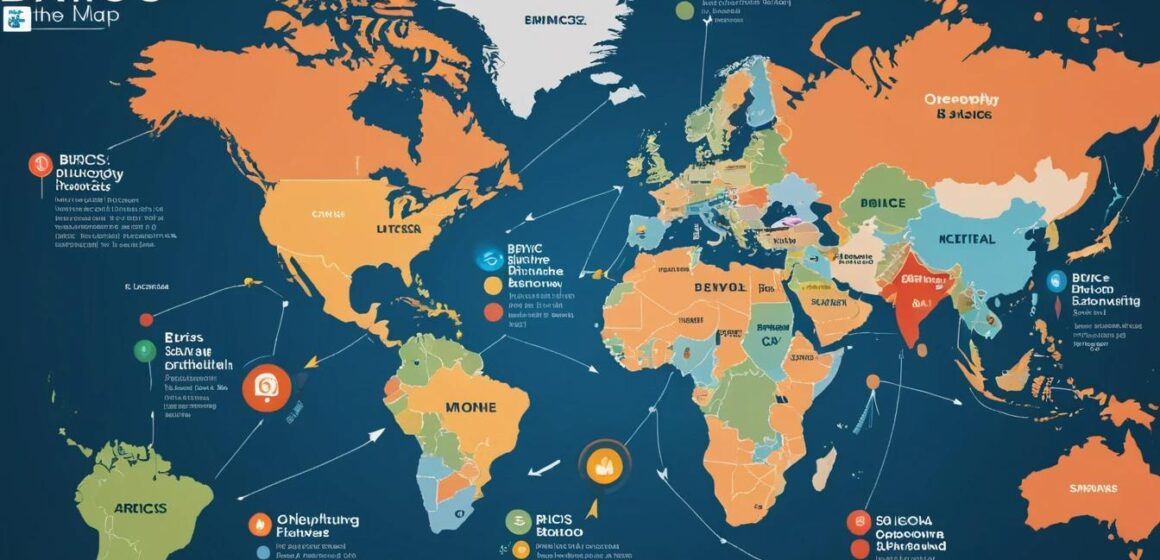The BRICS nations—Brazil, Russia, India, China, and South Africa—represent some of the world’s largest emerging economies. As these countries continue to grow economically, their influence on global trade dynamics becomes increasingly significant, especially for small businesses looking to expand their reach. This blog post examines how the growth of BRICS nations impacts small business trade and offers insights on how these businesses can leverage this evolving landscape.
Understanding BRICS Growth
Economic Expansion
The BRICS nations have experienced significant economic growth over the past two decades. Their collective GDP has surged, driven by factors such as industrialization, urbanization, and increased consumer spending. This growth is not just limited to the domestic front; these nations are becoming key players in international trade, thereby presenting vast opportunities for small businesses.
Infrastructure Development
Improvements in infrastructure within BRICS countries—such as transportation networks, digital connectivity, and energy supplies—enhance trade capabilities. These advancements lower the cost of doing business and simplify logistics for small enterprises, making it easier to access new markets.
Opportunities for Small Businesses

Access to New Markets
As BRICS nations grow, they create a favorable environment for international trade, opening doors for small businesses to reach new customers. For instance, an artisanal brand in a smaller country can tap into the burgeoning middle-class consumer base in India or China. E-commerce platforms, often favored in these markets, facilitate entry for small vendors into these regions without a significant upfront investment.
Collaboration and Backward Integration
The interdependence of BRICS economies encourages collaboration between businesses. Small firms can explore partnerships or joint ventures with local companies, thereby gaining insights into market demands and consumer preferences. Additionally, businesses can create products that cater specifically to the tastes and needs of BRICS consumers, enhancing competitiveness.
Innovation and Technology Exchange
The emphasis on innovation within BRICS nations has spawned numerous technological advancements. Small businesses can take advantage of this through collaborations or by adopting technologies that enhance their efficiency and product offerings. This not only improves their competitiveness but also opens up channels for trade in innovative products or services.
Challenges Faced by Small Businesses
While there are numerous opportunities, small businesses must also navigate various challenges that arise in these emerging markets.
Regulatory Hurdles
Each BRICS country has its own regulatory landscape, which can be complex and daunting for small businesses. Understanding local laws, trade agreements, and tax regulations can be overwhelming, requiring small businesses to invest time and resources into compliance.
Cultural Differences
Cultural nuances often influence business practices and consumer behavior. For small businesses looking to expand, it is vital to understand these dynamics to tailor their marketing strategies and product lines effectively. Failure to do so can lead to miscommunication and lost opportunities.
Competition
As external markets open up, local competition may also increase, particularly from more established players. Small businesses need to find ways to differentiate themselves and emphasize their unique value propositions to succeed in these competitive environments.
Strategies for Success
Market Research
Before entering BRICS markets, small businesses should invest in thorough market research. Understanding local consumer behaviors, preferences, and price points can provide valuable insights that lead to better strategic decisions.
Leveraging Digital Platforms
Utilizing digital marketing and e-commerce platforms can help small businesses reach broader audiences without substantial investment. Platforms like Alibaba, Amazon, or local e-commerce sites in BRICS nations provide convenient entry points for international trade.
Building Partnerships
Cultivating relationships with local businesses, trade associations, and chambers of commerce can be extremely beneficial. These connections help small businesses gain credibility, navigate the regulatory landscape, and better understand market nuances.
Conclusion
The growth of BRICS nations represents a significant opportunity for small businesses worldwide. By strategically navigating the challenges and leveraging the benefits of this evolving market, small enterprises can thrive in the global trade landscape. As these economies continue to mature, the potential for mutual growth and collaboration offers exciting prospects for the future of small business trade. As the world becomes increasingly interconnected, adaptable small businesses will be well-positioned to capitalize on these emerging opportunities.




Leave a Reply